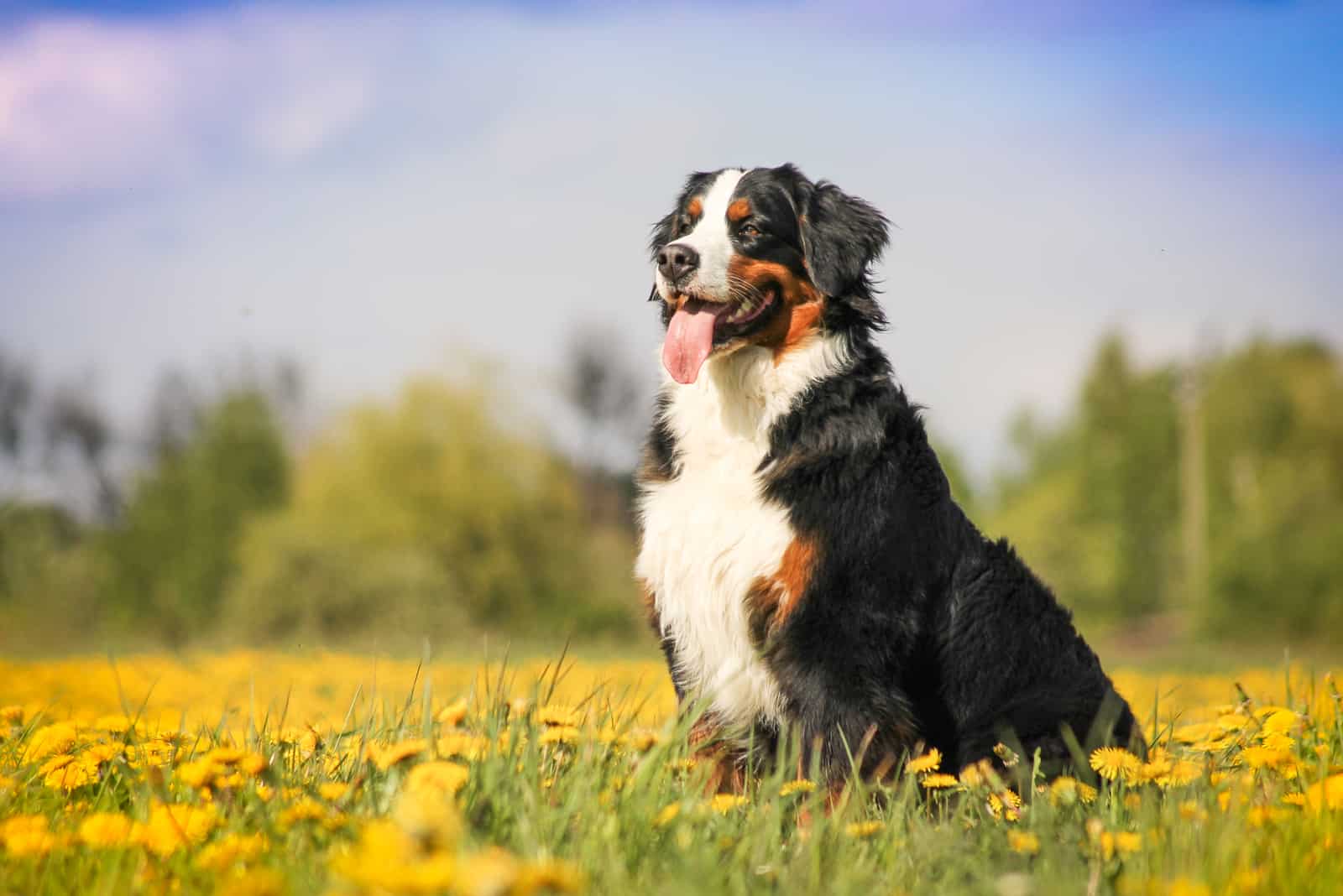The Bernese Mountain Dog is the ultimate gentle giant. It’s great with everyone, especially kids, and is calm and good-natured. These large dogs rank highly in the American Kennel Club’s list of most popular dog breeds and have been steadily rising over the years, currently sitting at #22 of 202.
It’s easy to see why they’ve stolen hearts everywhere since they left their native Switzerland, where they are known as Berner Sennenhund. They are huge and fluffy, affectionate and playful, and an absolute joy to be around.
On top of this, they are pretty easy to train and good with other dogs. All in all, they make amazing family pets! They’re alert and protective enough to be watchdogs but playful and friendly with everyone.
If you’re after this big guard dog for yourself, it’s a good idea to do your research and get as much breed information as you can. This includes finding out how much it will cost you.
This Bernese Mountain Dog cost guide will help you discover the truth and plan your budget accordingly.
How Much Do Bernese Mountain Dog Puppies Cost?
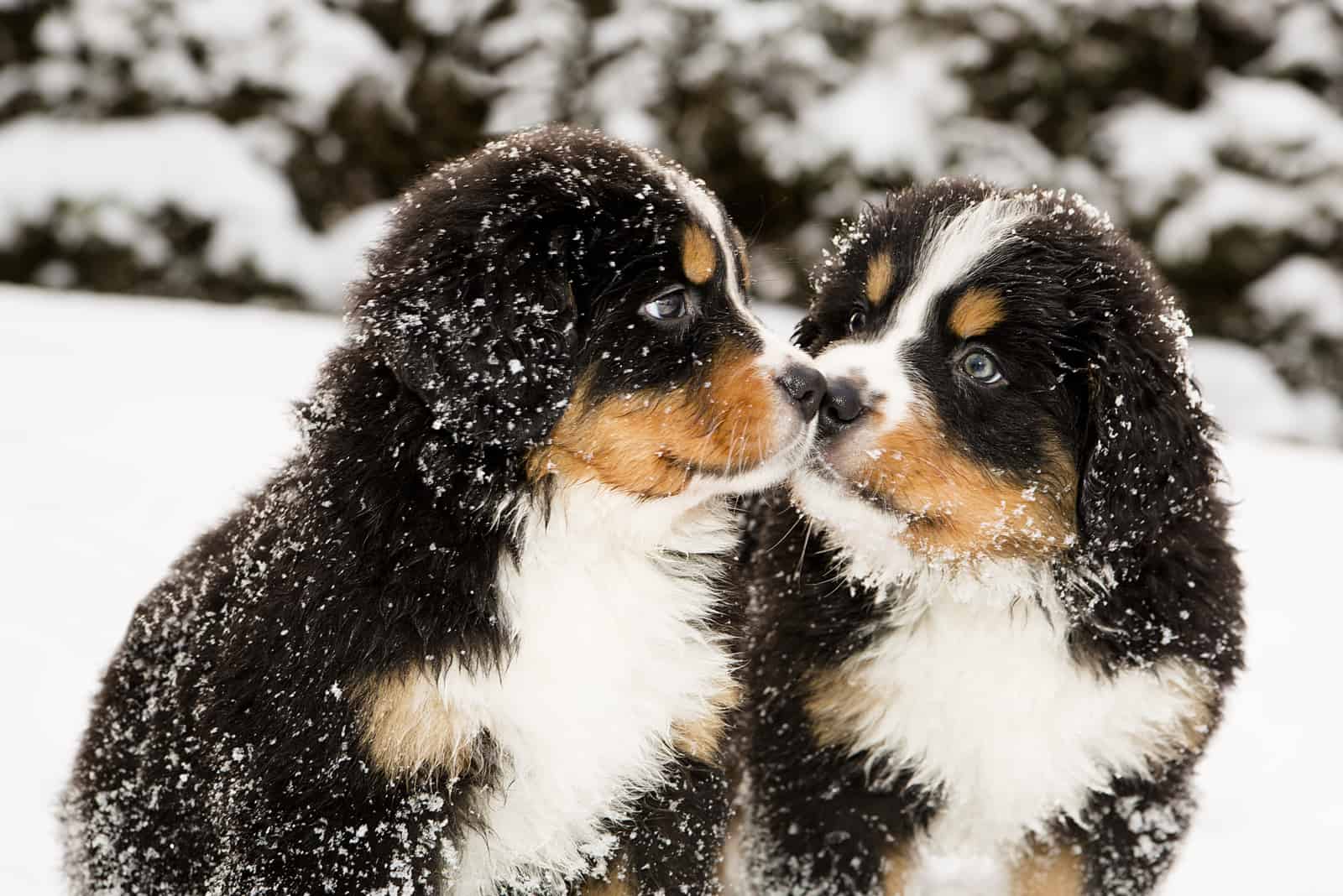
The average price of a Bernese Mountain Dog puppy is between $800 and $2,000, sometimes more.
Much will depend on the breeder’s reputation and location, the bloodline, and the pup’s pedigree. The price may also include vaccinations, microchipping, and health checks, and some breeders will throw in a puppy pack to help you out, containing a sample of dog food, a toy, a blanket, registration documents, etc.
As a rule, it’s best to be wary of anyone selling too cheaply. It’s hard to put an exact price on it, but a litter of pups can cost a breeder between $1,200 and $8,000, and that’s not taking into consideration any other overheads or expenses. Ethical breeders will only produce one or two litters a year, and few ever make a profit. It’s all about the love for the breed!
Aside from the price of your pup, you must prepare your home for their arrival. This means more expenses, as you’ll need a lot of equipment:
• Dog bed
• Dog crate
• Food/water bowls
• Leash
• Collar
• Puppy pads
• Toys
• Brushes
• Restraint (for car journeys)
• Poop bags
• Blankets
• Dog shampoo
• ID tags
• Dog toothbrush/toothpaste
• Nail clippers
• Treats (for training)
• Stair gates (to stop curious pups!)
On top of this, you’ll need to factor in grooming (see below), training classes, spaying/neutering, and regular check-ups at the vet.
In the first year, a puppy costs more than an adult dog. This could amount to approximately $5,000, including the price you paid for the pup in the first place (assuming you paid the average price of $1,500). Of course, you may not choose to use a professional groomer or to have your dog spayed/neutered. Even so, the costs will be significant, and you must make sure you are able to handle the financial burden.
How Much Do Bernese Mountain Dogs Cost?
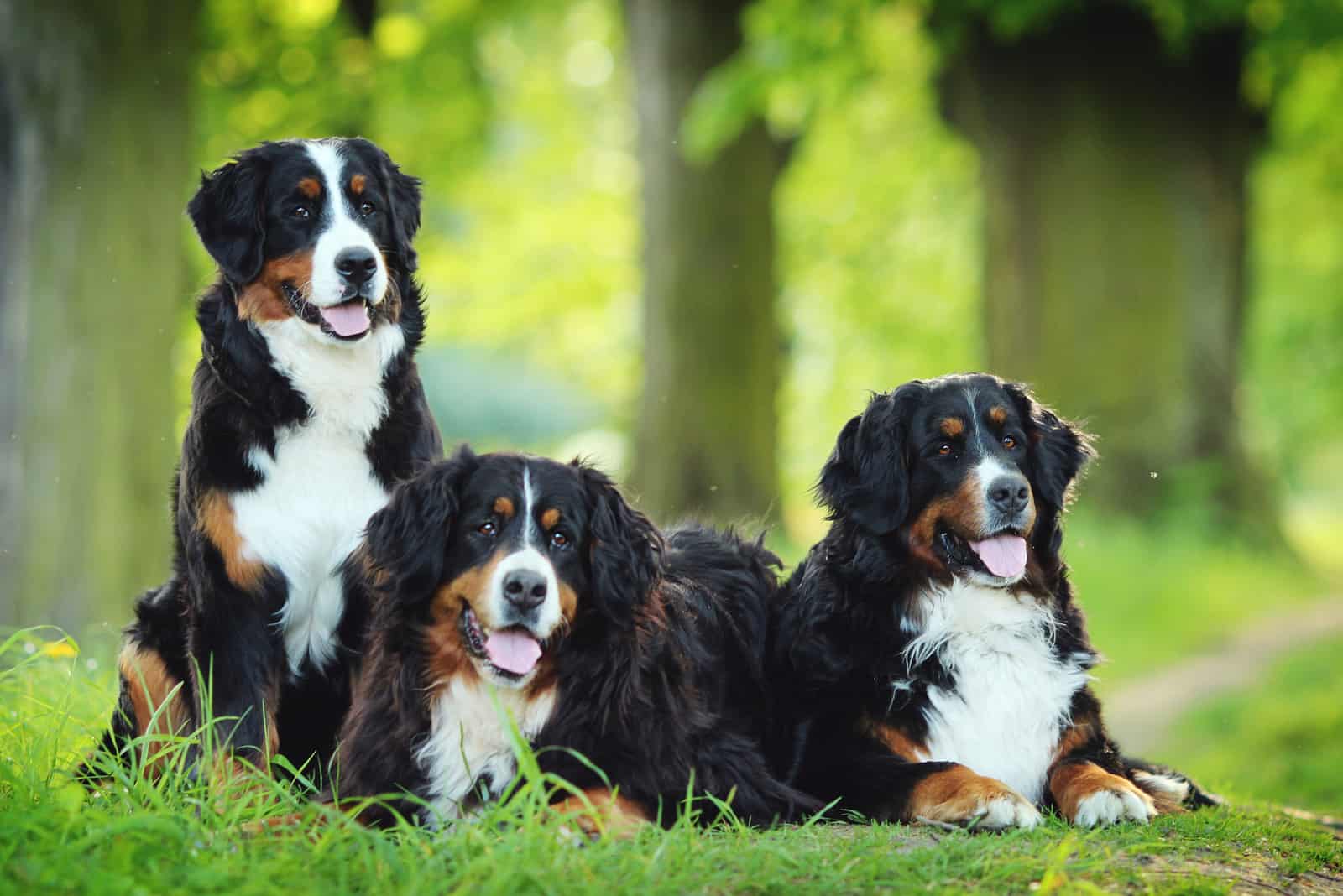
We’ve looked at the Bernese Mountain Dog price, but how much does a Bernese Mountain Dog cost during its lifetime?
The American Kennel Club (AKC) suggests that a dog will cost anything from $17,000 to $93,000 during its lifetime! The average cost seems to be around $26,000.
However, this is based on an average lifespan of between 10 and 12 years. Sadly, the Berner rarely lives this long, usually between 7 and 8 years.
Clearly, there are a lot of factors involved, and many people won’t use certain services, like dog walkers or professional groomers. Even so, the costs mount up.
Putting aside the initial price you pay for the pup and its first year of expenses (as covered in the previous section), your dog is going to cost between $2,000 and $9,000 every year for the next seven years. This doesn’t take into account any unexpected costs, usually related to medical issues.
Bernese Mountain Dogs For Sale: Craigslist

Just like any other online buying/selling platform, Craigslist is safe enough if you use your common sense. It’s great for buying stuff like furniture, cell phones, used tech, and so forth, as long as you use caution.
Now, you might say, but Craigslist doesn’t allow the sale of animals! and, in theory, you’d be correct. However, this isn’t very well regulated, and unscrupulous sellers find a way around the rules.
When it comes to buying dogs (or any animals), it’s best to avoid using Craigslist or any other online classified ads site (for example, Gumtree or Facebook Marketplace).
To begin with, many of these sites don’t offer the buyer any protection in the event of a scam. It’s estimated that as many as 80% of pups for sale via the internet are scams. Puppy scams rose by around 165% in 2021, partly in response to the increased demand for pets. The sellers often steal photos from legitimate websites and use them to fool people. They sometimes also set up fake websites, including ones for shipping companies.
Aside from being caught out by scams, online classified ads sites are favored by puppy mills and backyard breeders as a way of selling their dogs. These people are driven by profit and will cut corners when it comes to caring for the animals. Their female dogs are forced to mate as soon as they can after giving birth, and when they are exhausted and of no further use, they are dumped.
Most of these dogs are kept in small, filthy cages and fed substandard food. They never get the love, care, and socialization they need. Many dogs from puppy mills have serious health and behavior problems as a result. In addition, puppy mills don’t use health screening, so any genetic problems may be passed on to the pups. Finally, you won’t even have any guarantee that your pup is a purebred dog.
In terms of our Bernese Mountain Dog cost guide, paying out a few thousand dollars and getting nothing in return, or getting a sickly dog that might die on you after a few months, would be an unpleasant and traumatic thing to go through.
All in all, it’s best to avoid buying your dog from Craigslist or any similar site. Use a local, reputable breeder that you can meet in person.
Bernese Mountain Dogs For Sale Near Me
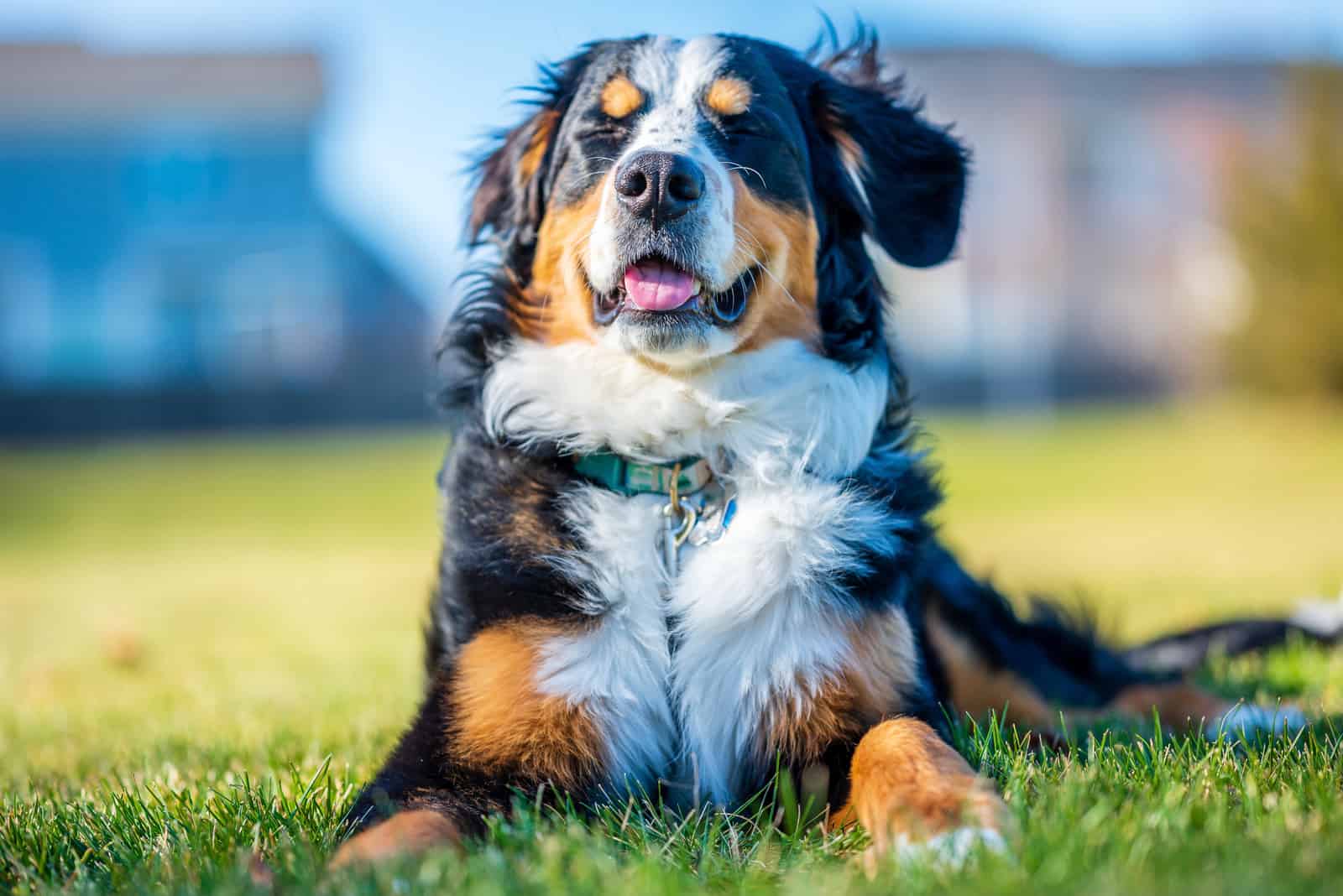
We’ve looked at the issue of buying online and seen the dangers that it poses in terms of scams and puppy mills.
Buying your pup locally makes a lot of sense as it cuts down the risk of you being conned and saves you the inconvenience and cost of traveling. It also means that your pup won’t have to be shipped, which can be a traumatic and uncomfortable experience for the dog and add to your expenses.
If you’re fortunate enough to have a Bernese Mountain Dog breeder nearby, be sure to check them out thoroughly. The good ones won’t mind this, as they’ll see that you are being sensible and care about the welfare of the dogs involved. Most will happily provide testimonials from satisfied customers.
All good breeders will welcome you to visit the facility (bear in mind that many are family homes) to meet them and at least one parent dog (usually the mother). If they used a stud service, then the father dog will be off-site, so it will be difficult to arrange a meeting.
Ask as many questions as you wish. Reputable breeders will talk about their dogs all day and enjoy explaining their breeding programs, health testing procedures, and all things doggy in general!
Observe how the parent dog (or dogs) acts around them. A nervous, timid, or aggressive animal is a very bad sign.
Check how clean and tidy the dog’s living space is. All the best breeders keep their dogs in the home where they live as treasured family pets. Some breeders won’t allow you to see the pups until they are several weeks old, as they are concerned about the risk of passing on disease and sickness.
However, if this is the case, good breeders will provide a video link or photos that journal your pup’s first few weeks of development.
Don’t be surprised or offended when the breeder asks what seems like personal questions about you, your family, and your lifestyle and living arrangements. In fact, you should be encouraged by this, as it shows that they are interested in where their pups are going. All good breeders do this!
Related: Best 5 Bernese Mountain Dog Breeders In California
Bernese Mountain Dog Adoption Price
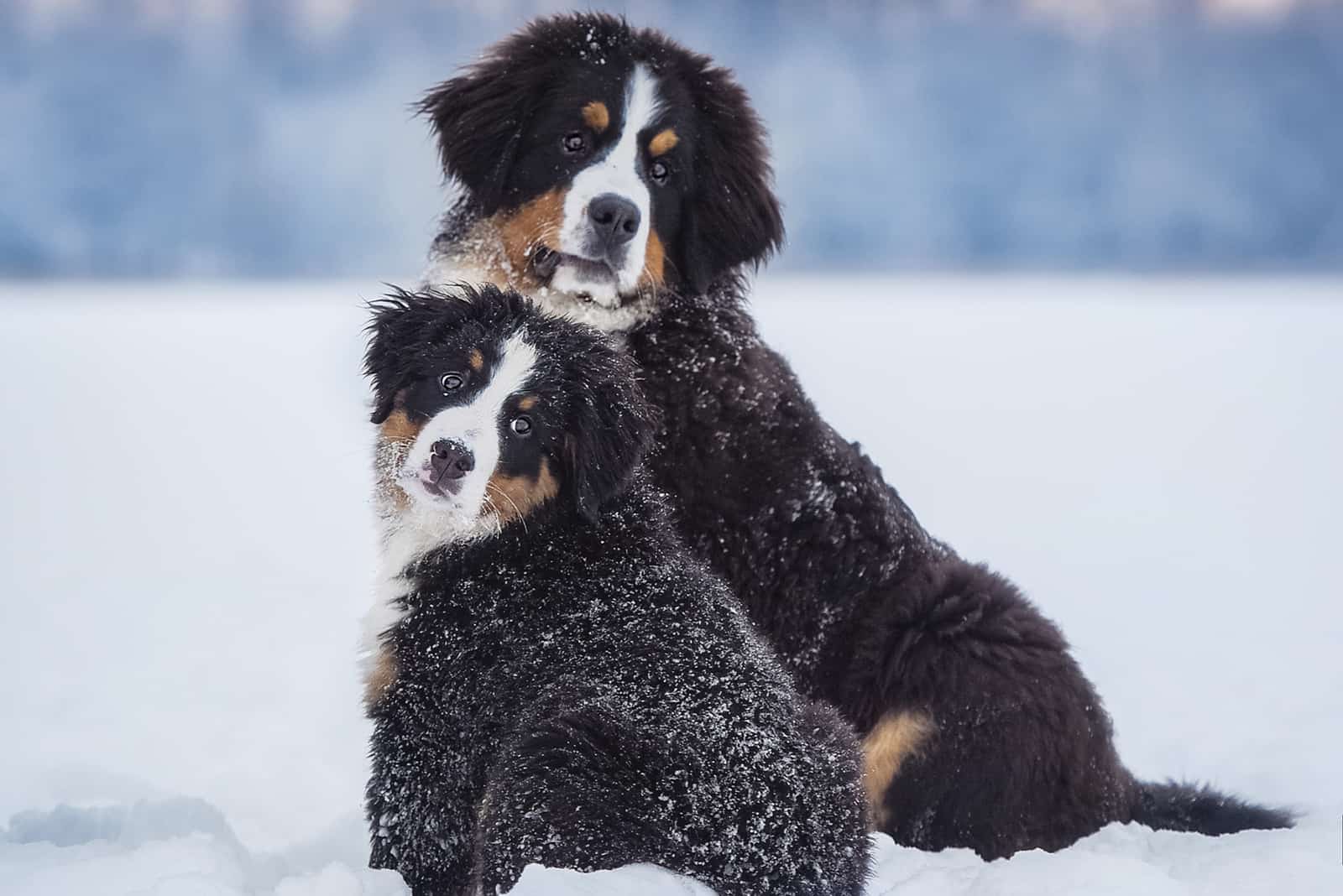
We can’t look at the Bernese Mountain Dog cost without exploring the possibility of adoption.
In America alone, around three million dogs are housed in shelters and rescue centers every year. Berners are among the dogs that are surrendered, abandoned, or neglected and abused, so it’s pretty likely that you’ll find one there.
In terms of cost, adoption fees from a breed-specific rescue will be between $300 and $400, which is significantly less than buying a pup from a breeder.
It’s important to state here that dog rescues are not in competition with breeders. In fact, all the best dog breeders support rescue centers and animal shelters wholeheartedly. Many will adopt dogs themselves, make regular donations, or simply share details of dogs that need a forever home. And all good breeders will encourage you to adopt rather than buy a pup, even if it means that they miss out on a sale.
Rescues work tirelessly to save as many dogs as possible from languishing in shelters. They use foster homes to assess, train, and rehabilitate dogs in preparation for their new homes. Each dog is given the love, attention, and any medical care that it needs and deserves, which is where the fees are invested. The vast majority (if not all of them) are registered charities run entirely by amazing volunteers who give everything to ensure that these dogs get a chance at a loving home.
Adoption fees for dogs from animal shelters are usually even lower, between $50 and $100. This is because they are usually desperate for space, and they need the dogs gone. Although there’s a huge drive towards no-kill shelters in the US, between 400,000 and 800,000 shelter dogs are destroyed annually*, mostly because of a lack of space and resources.
Adopting a dog is a great way to reduce your costs and provide a forever home for a beautiful pooch that really needs it. You might even save their life.
*Figures differ according to the source used, but even the lower number is unacceptably high.
Bernese Mountain Dog Cost: Health Problems
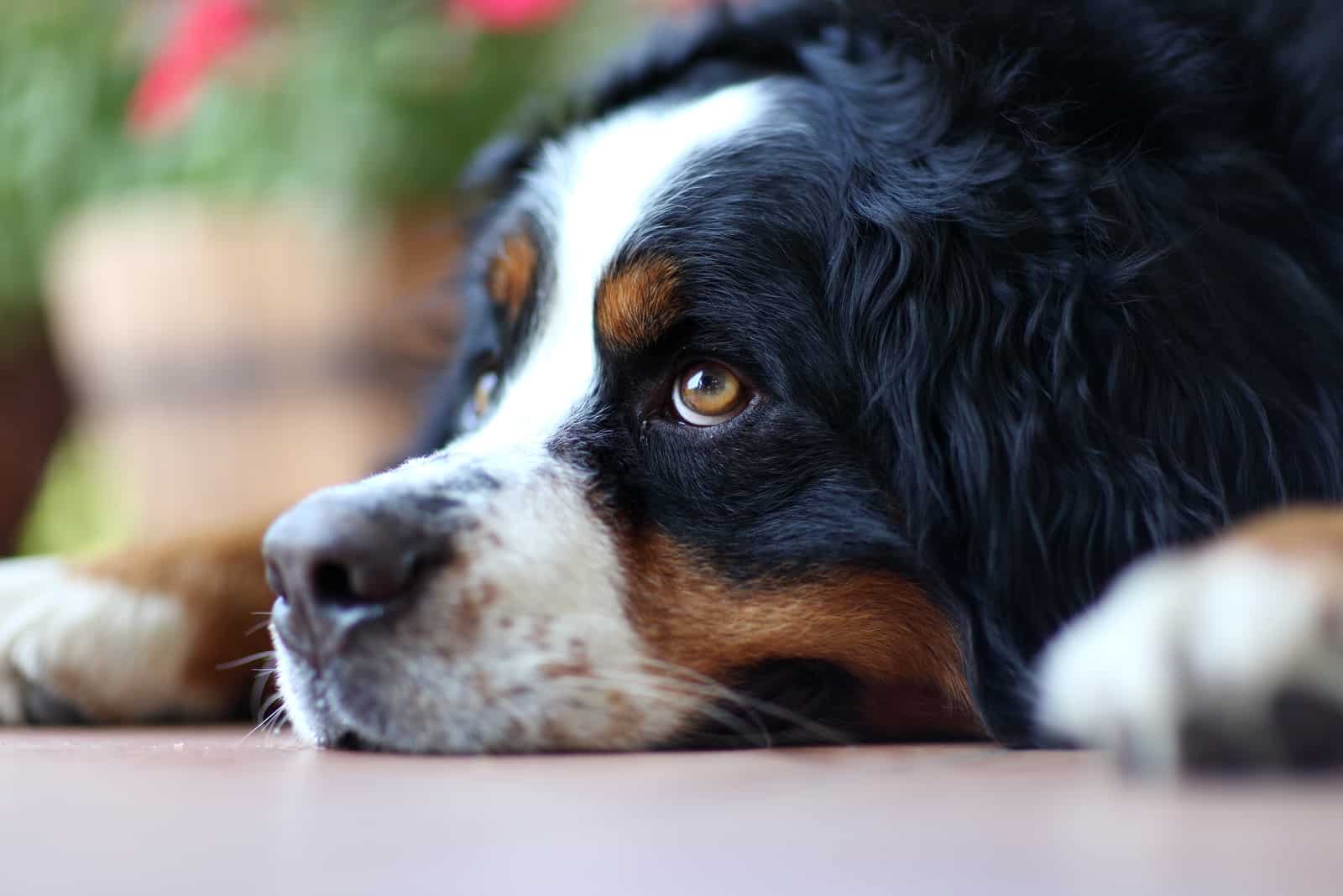
We all want our pooches to live a long and happy life, free from pain and sickness. However, the reality is that our furry friends sometimes get sick. On top of the worry of seeing them suffer, we have the burden of paying vet bills.
Veterinary care is an important factor when looking at the subject of Bernese Mountain Dog cost.
Here are a few common health issues along with the typical costs of treatment.
• Hip dysplasia – A painful condition where bone rubs against bone due to a poorly formed joint. Surgery is necessary in severe cases, and this can cost between $3,500 and $7,000 per hip, depending on the age, size, and general state of health.
• Elbow dysplasia – Similar to the above condition, but it can present complications as the joint is more complex. Treatment usually costs between $2,000 and $4,000 per elbow. Statistics show that both elbows are affected in 80% of patients.
• Degenerative myelopathy (DM) – A progressive disease of the spinal cord that causes a loss of coordination of the hind limbs, eventually leading to complete loss of use. At present, there is no cure for DM, and the average life expectancy after diagnosis is between six months and three years. Although the condition isn’t painful, quality of life can be severely impacted. Many vets will advise that the dog be euthanized before this happens. It’s difficult to put a cost on care during this time, but on average, you’ll pay between $35 and $750 to have your dog euthanized, depending on what is included (cremation, burial in a pet cemetery, etc.).
• Progressive retinal atrophy – PRA is a group of degenerative eye conditions that eventually cause blindness. Sadly, there is no cure for this condition either. Once it has been diagnosed, the best course of action is to prepare your dog for life without sight. Thankfully, most of them cope with this very well.
• Cancers – Around 10% of Berners get some form of cancer before they reach 6 years of age, which accounts for their surprisingly short lifespan. Lymphoma affects Bernese Mountain Dogs more than any other breed. Diagnosis costs between $1,000 and $2,000, and treatment can cost between $3,000 and $15,000, depending on the dog’s size and state of health.
• Gastric dilatation-volvulus – Also known as gastric torsion or bloat, this is when the stomach inflates with gas and twists around on itself. It is fatal if not detected and treated in time. Treatment generally costs between $2,000 and $5,000 if there are no complications. This includes surgery, anesthesia, and post-op care. Thankfully, the prognosis is usually excellent, with a 90% recovery rate if detected and treated in time.
• Cruciate disease – The cranial cruciate ligament is found in the knee joint, connecting the tibia and the femur. Over time, this ligament can deteriorate, eventually rupturing and causing lameness. Treatment can cost between $750 and $5,000 per knee, depending on the size of the dog and the extent of the surgery.
• Von Willebrand’s disease – This genetic condition stops the blood from clotting properly, potentially leading to excessive blood loss. Unfortunately, there is no cure, and the best any dog owner can do is manage the condition. It will add to the cost of surgery, as special care will be needed, including the use of clotting agents. You will also need to take great care to avoid your dog getting injured. Nail trimming is a particularly risky procedure as you may clip too far and catch the quick. Females will have to be spayed to avoid excessive bleeding when in heat.
As you can see, medical costs can be pretty scary! Your first step in reducing the risk is to only use ethical, responsible Bernese Mountain Dog breeders. They will test the parent dogs for any genetic health problems and take great care of the mother and her pups. Many will start socializing the puppies using the early neurological stimulation method, which strengthens the pups, making healthier, well-adjusted adults.
The second step is to invest in a good pet insurance policy to help with any unexpected medical costs.
We remind you that, according to some beliefs, mixed dog breeds are more healthier than purebred dogs in general. So, we suggest you take a look at our list of Bernese Mountain Dog mixes!
Bernese Mountain Dog Cost: Grooming
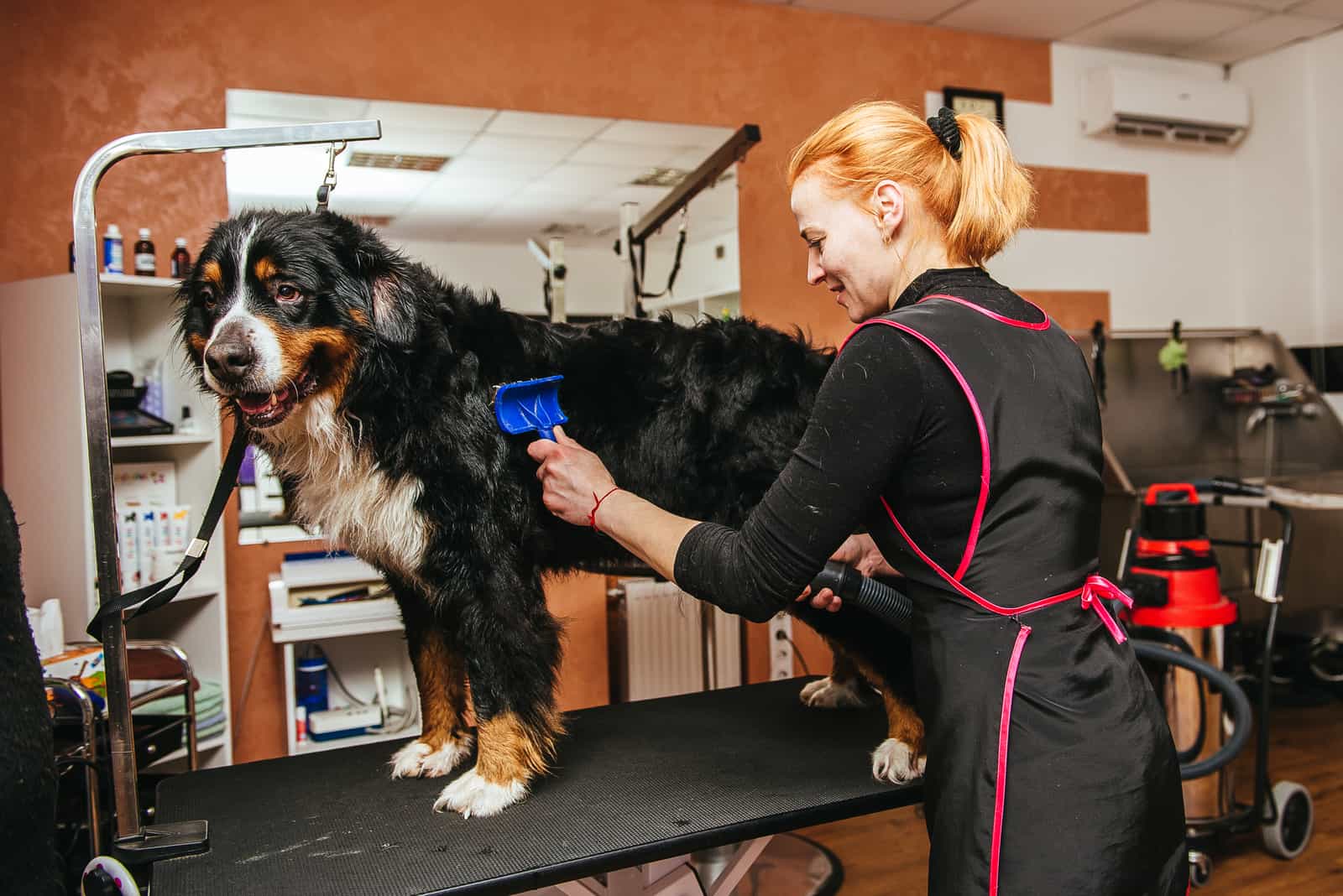
The Berner has a thick coat that is designed for colder climates. This working dog is related to the Mastiff, which accounts for its immense size, measuring as much as 27.5 inches at the shoulder!
Because it is big and fluffy, it takes a fair amount of grooming, but not as much as you might think. These herding dogs have long guard hairs over a thick undercoat, allowing dirt to fall off easily, keeping the coat relatively clean.
This dog needs to be brushed at least once a week, but preferably several times. A slicker brush is ideal for the job and will help to keep the loose hair under control. Daily brushing will be required during spring and fall in the shedding season unless you want to be up to your eyes in dog hair!
If you live in warmer regions, don’t ever be tempted to shave or clip your dog’s coat! This will affect their ability to regulate their body temperature and expose them to the risk of sunburn and skin cancer.
While it’s perfectly possible to groom your Berner yourself, many people choose to use a professional groomer. They have all the right equipment and are skilled at what they do. They’ll also use the best shampoos and conditioners that will keep your dog’s coat looking glossy and healthy.
As you will have guessed, big dogs cost more. Depending on what services you ask for, it could cost you between $50 and $100.
Most good groomers offer the following:
• Bathing
• Brushing
• Drying
• Nail clipping
• Ear cleaning
• Nail buffing
While they perform these tasks, they will also check for signs of infection in the ears, ticks, fleas, and any unusual lumps and bumps. Catching these things early goes a long way to reducing the chances of any health problems becoming severe.
It’s a good idea to book a trip to the groomer every 6 to 8 weeks if possible.
Bernese Mountain Dog Cost: Food

One of the biggest everyday costs is dog food. With this huge Swiss dog weighing between 70 and 115 pounds, they need a lot of food! A good quality dog food will cost around $75 a month, which is $900 for the year.
While it’s tempting to opt for cheaper dog food, it’s never wise to compromise on quality as this may put your dog’s health at risk. However, expensive food isn’t always good quality! Be sure to check out some popular brands and ask other dog owners for impartial advice. Your breeder will have an excellent idea of which foods to use as they will have researched thoroughly to find the ones with the best nutritional value. Most will send a sample of puppy food home with you, and they’ll be keen to keep in touch to check on the pup’s progress. Good breeders always offer lifetime support, so feel free to take advantage of their expertise and ask them about the best dog food for your pooch!
The same applies to dog treats, as some really aren’t healthy. While we all want to spoil our furry friends, giving them unhealthy treats will harm them in the long run. This includes many human foods. You should avoid giving them anything fried, especially bacon.
Now, you’ll come across websites run by dog ‘experts’ that claim that it’s okay to feed your dog the odd piece of bacon, chili con carne, hot dogs, chips, and so on. They’ll say things like, I’ve been doing this for years, and my dog is fine!
The trouble is, it takes years for the problems to build up. These foods are packed with fatty acids, salt, preservatives, and all kinds of additives that will have a detrimental effect on your dog’s health. Dogs that regularly consume these foods are likely to succumb to pancreatitis and even diabetes. In the short term, a high salt intake can lead to sodium ion poisoning, which can be fatal.
Dogs have surprisingly delicate digestive systems, and many will have a bad reaction to the foods we eat. Vomiting and diarrhea are the usual symptoms.
You might ask, what does this have to do with Bernese Mountain Dog cost?
The answer is that by feeding your dog unhealthy foods, you could be risking their health and inviting even bigger vet bills to fix the problem!
Not to mention the unnecessary suffering that your poor pooch will go through.
While it’s generally considered safe to treat your furry pal to the odd sliver of bacon once in a while, the best advice is to stick to treats that are designed specifically for dogs.
Find more information on this dog’s nutrition in our Bernese Mountain Dog feeding chart.
What To Take Away
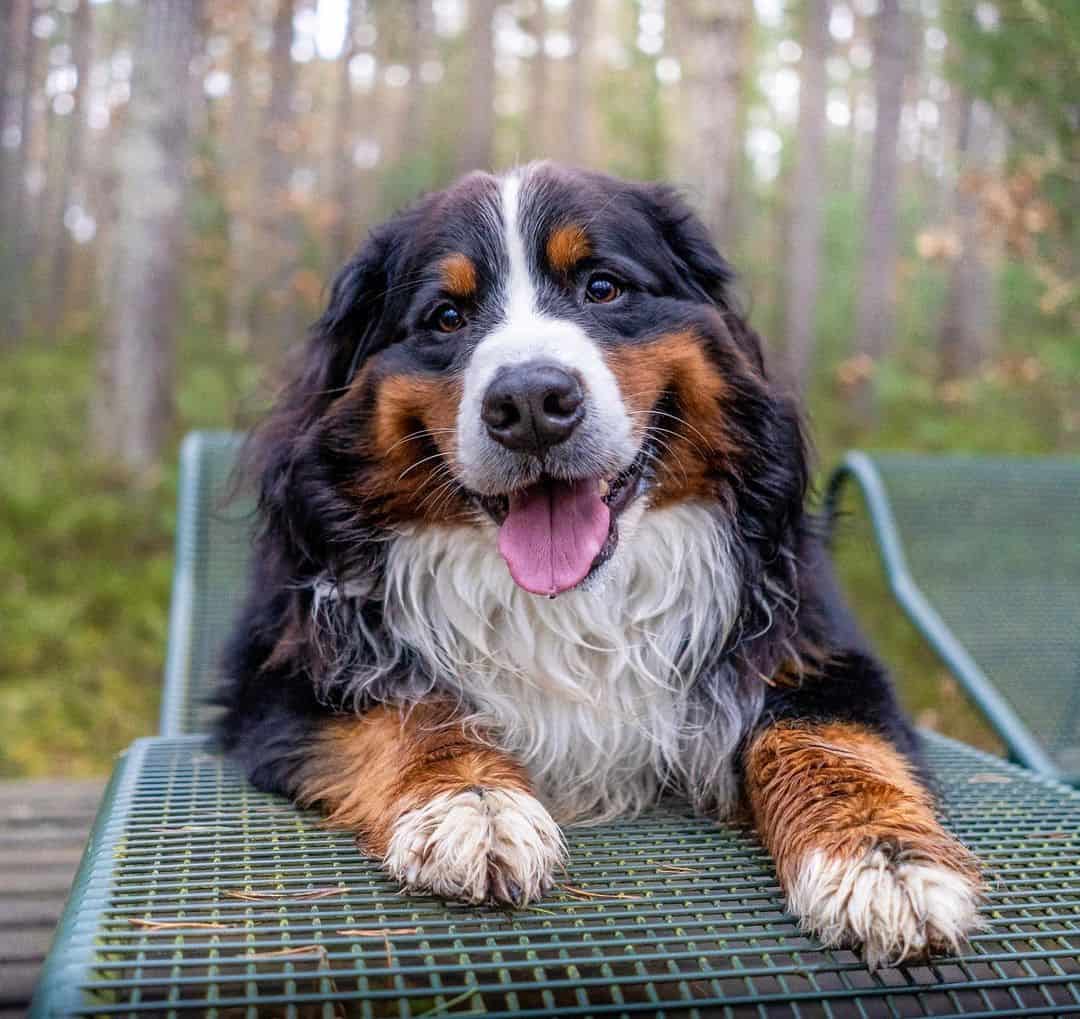
Photo from: @miroberner
Caring for any dog is a big responsibility, emotionally, physically, and financially. When you choose a large breed, the financial burden often increases too. A big dog equals big bills! Generally, a small dog will cost significantly less. If you love the Berner’s good nature but want something smaller (and with a longer lifespan!), you might want to consider getting a Golden Retriever.
However, if you really want a Bernese Mountain Dog, then you need to prepare for the expense.
On top of the initial price of your pup, you’ll need to put aside funds for equipment, food, grooming, vet bills, and so on.
Because of this, it is vital that you make sure that you are able to afford a dog before you get one. Buying a puppy without considering the full financial implications will put you in a difficult position. What’s worse, from the dog’s perspective, is that you may be forced to give them up. Thousands of dogs face the trauma of being surrendered to shelters and rescues every year for this very reason, as we mentioned above.
Before heading to your local breeder, consider your nearest rescue or shelter first. It’s unlikely that you’ll find a young puppy, but it will definitely reduce your overall costs as you’ll avoid the large price tag and the first year or so of expenses.
However, if you really want a pup, then take some time to prepare and add up the potential costs. Once you are certain, then go ahead, as it’s an investment that’s worth every cent.
Read Next:
Blue Bay Shepherd Price: Is This Gorgeous Wolf Hybrid Expensive?
5 Best Bernese Mountain Dog Breeders In The UK
